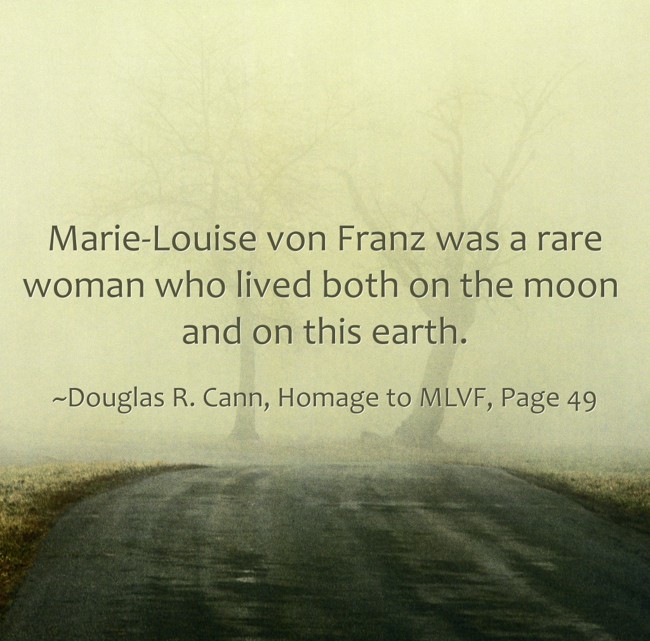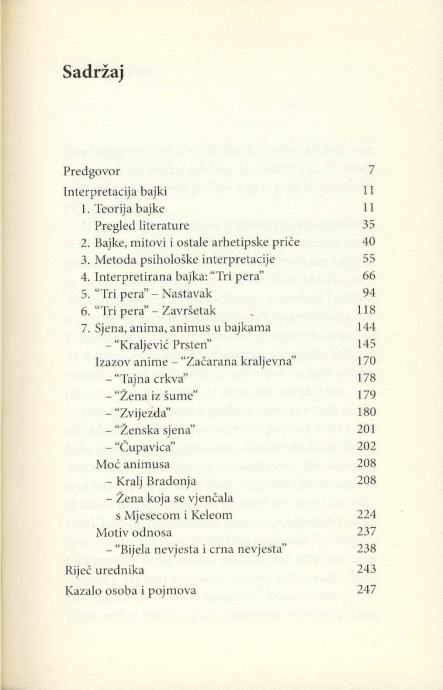

Thus, she looks at fairy tales as images of different phases of experiencing the reality of the soul. Marie-Louise von Franz’ interpretation of fairy tales bases on Jung‘s view of fairy tales as a spontaneous and naive product of soul, which can only express what soul is. Von Franz later also connected fairy tale interpretation with everyday life and according to Alfred Ribi, she became known as the first to discover and demonstrate the psychological wisdom of fairy tales. The work was published in the book “ Symbolik des Märchens” ( Symbolism of Fairy Tales) even though it was published under the name of Hedwig von Beit. Fairy Tales then became important for her regarding psychological questions. Von Franz indulged into a time-consuming 9-years research and interpretation work. In 1935, narrative researcher and private scholar Hedwig von Beit asked Marie-Louise von Franz to assist her part-time with writing a book about fairy tales. Fairy Tales and their Psychological Interpretation Jung called the objective psyche or the collective unconscious shaped her life and work just as much as her confrontation with the reality of this layer of the psyche, which faces consciousness autonomously.

Von Franz’ collaboration with Carl Gustav Jung lasted until his death in 1961. The experience of what C.


Since numerous passages in it came from treatises of Islamic-Persian origin, she also added Arabic to her subjects. She started analytical training with Jung in 1934 and paid Jung by translating works for him from Greek and Latin texts including Thomas Aquinas’ Aurora Consurgens and Musaeum Hermeticum. Next to her own studies at the University of Zurich, von Franz attended Carl Gustav Jung’s psychological seminars and lectures. von Franz began her studies of classical philology and languages (Latin, Greek) as main subjects and literature and ancient history as subsidiary subjects at the University of Zurich, which she completed “summa cum laude” in 1940 with her doctorate on “ Die ästhetischen Anschauungen der Iliasscholien” ( The Aesthetic Views of the Iliads). Around the age of 18, she and a few classmates met the psychiatrist Carl Gustav Jung discussing psychology which highly influenced the young woman. Gallen. She attended a high school in Zurich, specializing in languages and literature. From 1919 she lived in Switzerland, in the rural Rheineck in the canton of St. Marie-Louise Ida Margareta von Franz was born in Munich, Germany, the daughter of Margret Susanne, née Schoen and Baron Erwin Gottfried von Franz (1876-1944), an Austrian colonel in the general staff of the Austro-Hungarian army. Marie Louise von Franz, “The Process of Individuation” – Part 3 in Man and His Symbols (1961) Marie-Louise von Franz – Youth and Education “The ego must be able to listen attentively and to give itself, without any further design or purpose, to that inner urge toward growth. Her research showed common themes in tales from many cultures, which she linked with experiences in daily life. Von Franz is renowned for her psychological interpretations of fairy tales and of alchemical manuscripts. On January 4, 1915, Swiss Jungian psychologist and scholar Marie-Louise von Franz was born. Marie-Louise von Franz (1915-1998), Un fotogramma da “Quattro decenni di Plays” con Marie Luise Von Franz, O.


 0 kommentar(er)
0 kommentar(er)
